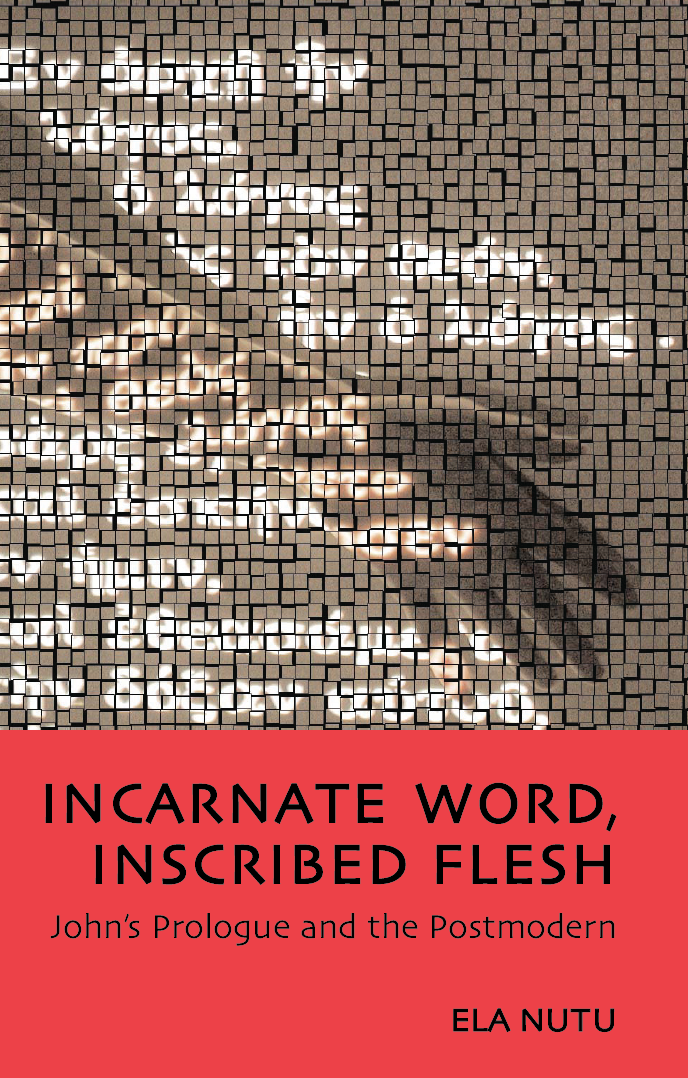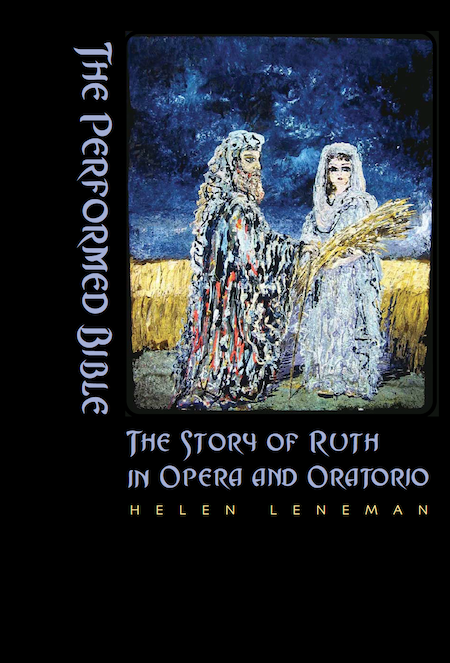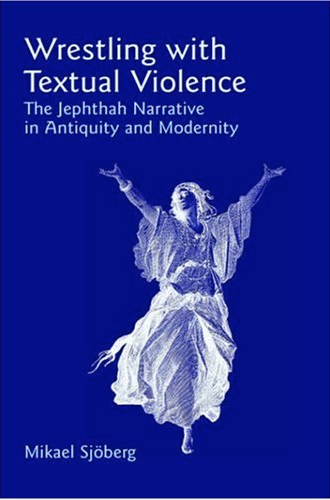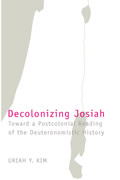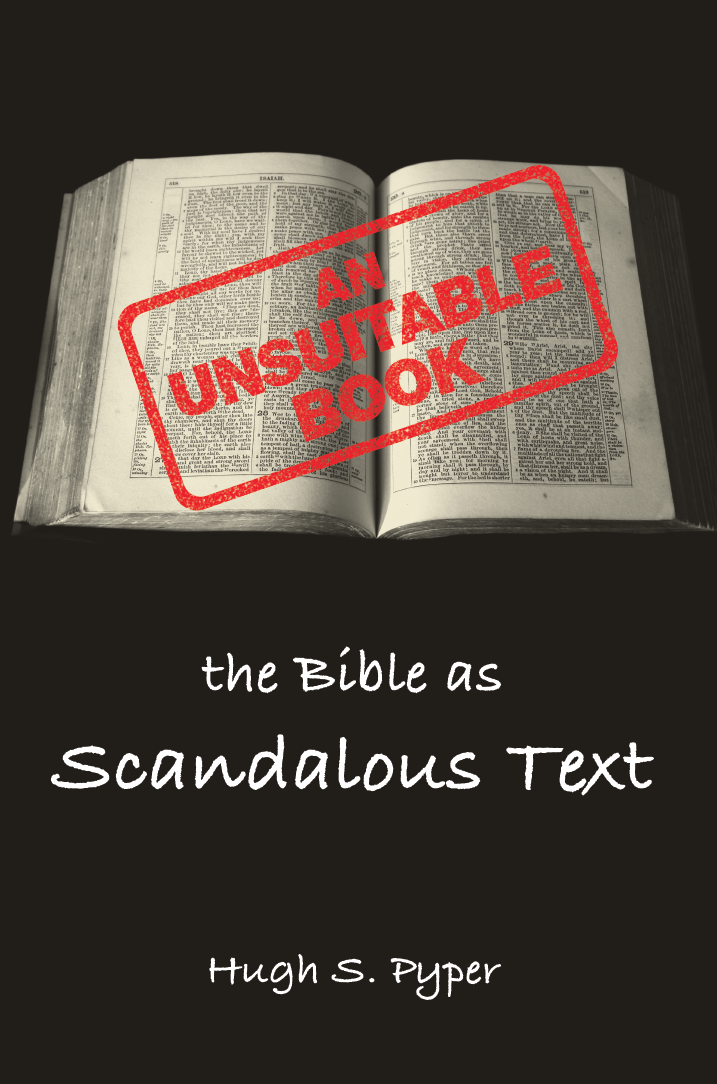Incarnate Word, Inscribed Flesh: John’s Prologue and the Postmodern
Published: Aug 2007
£50.00
The pre-existent, transcendent Logos, the principal character in the prologue of John's Gospel, is a prime example of a unified and centred concept, such as denounced as illusory by deconstruction. In this ground-breaking study, Nutu offers an unremittingly postmodern scrutiny of the Logos as the incarnate word that becomes visible as it is inscribed in human flesh. Within view also is the reverse process, of becoming 'children of God', which signifies human beings willingly accepting God's word, his tattoo, upon their flesh in order to pertain to the realm of the Logos.
A second strand of this book is Nutu's tracing the fragmented afterlives of John's Prologue and their different effects on the formation of subjects (with a particular focus on homo religiosus and feminine 'I's) through postmodern film. At the dawn of a new millennium, films continue to play an important role in the cultural development of society; even moving away from the self-confessed biblical films, new productions like The Pillow Book, The Fifth Element and The Matrix (all engaged here) mediate elements of biblical narrative, theology, allegory, ethics and identity.
As the Bible continues its influence on society and the formation of subject positions, biblical texts are re-interpreted, recycled within many discourses. This is a study that skilfully interweaves a number of contemporary theoretical currents such as deconstruction, psychoanalytical criticism, gender and cultural studies and initiates a new approach to interpretation, namely postcommunist, influenced by the writer's own experience of growing up in Romania.
Incarnate Word, Inscribed Flesh: John’s Prologue and the Postmodern
£50.00
The pre-existent, transcendent Logos, the principal character in the prologue of John's Gospel, is a prime example of a unified and centred concept, such as denounced as illusory by deconstruction. In this ground-breaking study, Nutu offers an unremittingly postmodern scrutiny of the Logos as the incarnate word that becomes visible as it is inscribed in human flesh. Within view also is the reverse process, of becoming 'children of God', which signifies human beings willingly accepting God's word, his tattoo, upon their flesh in order to pertain to the realm of the Logos.
A second strand of this book is Nutu's tracing the fragmented afterlives of John's Prologue and their different effects on the formation of subjects (with a particular focus on homo religiosus and feminine 'I's) through postmodern film. At the dawn of a new millennium, films continue to play an important role in the cultural development of society; even moving away from the self-confessed biblical films, new productions like The Pillow Book, The Fifth Element and The Matrix (all engaged here) mediate elements of biblical narrative, theology, allegory, ethics and identity.
As the Bible continues its influence on society and the formation of subject positions, biblical texts are re-interpreted, recycled within many discourses. This is a study that skilfully interweaves a number of contemporary theoretical currents such as deconstruction, psychoanalytical criticism, gender and cultural studies and initiates a new approach to interpretation, namely postcommunist, influenced by the writer's own experience of growing up in Romania.
The Performed Bible: The Story of Ruth in Opera and Oratorio
Published: Apr 2007
£40.00
The Bible and Western culture is a burgeoning area of interest in recent scholarship, but comparatively little has been written on the Bible and music. Leneman's is a groundbreaking work, making some pioneering forays across an important interdisciplinary divide.
The Performed Bible is an in-depth study of the librettos and music of 12 operas and oratorios on the story of Ruth from the last two centuries, establishing the potential of music, as a kind of midrash, for transforming a Bible text, its narrative and its characterization. The book includes detailed analyses of musical segments, the author being a cantor and professional musician in whose Jewish tradition biblical texts are chanted, not read.
This fresh and insightful work will no doubt prove attractive to biblical scholars, to musicians and to music lovers generally.
The Performed Bible: The Story of Ruth in Opera and Oratorio
£40.00
The Bible and Western culture is a burgeoning area of interest in recent scholarship, but comparatively little has been written on the Bible and music. Leneman's is a groundbreaking work, making some pioneering forays across an important interdisciplinary divide.
The Performed Bible is an in-depth study of the librettos and music of 12 operas and oratorios on the story of Ruth from the last two centuries, establishing the potential of music, as a kind of midrash, for transforming a Bible text, its narrative and its characterization. The book includes detailed analyses of musical segments, the author being a cantor and professional musician in whose Jewish tradition biblical texts are chanted, not read.
This fresh and insightful work will no doubt prove attractive to biblical scholars, to musicians and to music lovers generally.
Empire and Apocalypse: Postcolonialism and the New Testament
Published: Oct 2006
Price range: £18.50 through £37.00
In Empire and Apocalypse Stephen Moore offers us the most complete introduction yet to the emergent field of postcolonial biblical criticism. It includes an indispensable in-depth introduction to postcolonial theory and criticism together with a detailed survey of postcolonial biblical criticism.
Next come three substantial exegetical chapters on the Gospels of Mark and John and the Book of Revelation, which together demonstrate how postcolonial studies provide fresh conceptual resources and critical strategies for rethinking early Christianity's complex relations to the Roman Empire. Each of these three texts, to different degrees, Moore argues, mimic and replicate fundamental facets of Roman imperial ideology even while resisting and eroding it.
The book concludes with an amply annotated bibliography whose main section provides a comprehensive listing of work done to date in postcolonial biblical criticism.
Empire and Apocalypse: Postcolonialism and the New Testament
Price range: £18.50 through £37.00
In Empire and Apocalypse Stephen Moore offers us the most complete introduction yet to the emergent field of postcolonial biblical criticism. It includes an indispensable in-depth introduction to postcolonial theory and criticism together with a detailed survey of postcolonial biblical criticism.
Next come three substantial exegetical chapters on the Gospels of Mark and John and the Book of Revelation, which together demonstrate how postcolonial studies provide fresh conceptual resources and critical strategies for rethinking early Christianity's complex relations to the Roman Empire. Each of these three texts, to different degrees, Moore argues, mimic and replicate fundamental facets of Roman imperial ideology even while resisting and eroding it.
The book concludes with an amply annotated bibliography whose main section provides a comprehensive listing of work done to date in postcolonial biblical criticism.
Wrestling with Textual Violence: The Jephthah Narrative in Antiquity and Modernity
Published: Oct 2006
£50.00
A story of a judge who sacrifices his virgin daughter is of course an issue both in ethics and in gender studies. Such is the biblical narrative of Jephthah. Sjöberg undertakes a comparative analysis of six different versions of the Jephthah narrative: the biblical tale in the book of Judges, the Jewish telling in Pseudo-Philo's Liber antiquitatum biblicarum (first century CE), Josephus's report in his Jewish Antiquities (also first century CE), Handel's oratorio Jephtha (1751), the British author E.L. Grant Watson's novel A Mighty Man of Valour (1939), set in Australia, and the short story by the Israeli novelist Amos Oz, 'Upon This Evil Earth' (1981).
Five main interpretative strategies are uncovered in this remarkable analysis: condemnation, identification, glorification, alienation and censure. Each strategy affects in different ways the reader's assessment of power relations in the story and the reader's own willingness to change.
In a final move, Sjöberg embarks on a critical discussion of the programmes of Elisabeth Schüssler Fiorenza and Daniel Patte for an ethics of biblical interpretation. Sjšberg advocates an interpretative pluralism, arguing that biblical studies should stand in the service of the general public.
Wrestling with Textual Violence: The Jephthah Narrative in Antiquity and Modernity
£50.00
A story of a judge who sacrifices his virgin daughter is of course an issue both in ethics and in gender studies. Such is the biblical narrative of Jephthah. Sjöberg undertakes a comparative analysis of six different versions of the Jephthah narrative: the biblical tale in the book of Judges, the Jewish telling in Pseudo-Philo's Liber antiquitatum biblicarum (first century CE), Josephus's report in his Jewish Antiquities (also first century CE), Handel's oratorio Jephtha (1751), the British author E.L. Grant Watson's novel A Mighty Man of Valour (1939), set in Australia, and the short story by the Israeli novelist Amos Oz, 'Upon This Evil Earth' (1981).
Five main interpretative strategies are uncovered in this remarkable analysis: condemnation, identification, glorification, alienation and censure. Each strategy affects in different ways the reader's assessment of power relations in the story and the reader's own willingness to change.
In a final move, Sjöberg embarks on a critical discussion of the programmes of Elisabeth Schüssler Fiorenza and Daniel Patte for an ethics of biblical interpretation. Sjšberg advocates an interpretative pluralism, arguing that biblical studies should stand in the service of the general public.
Creation and Creativity: From Genesis to Genetics and Back
Published: Aug 2006
Price range: £18.50 through £40.00
The idea of creation and creativity is among the most powerful and pervasive of metaphors bequeathed to the modern world by the scriptures of Judaism, Christianity and Islam.
Twelve specialists here explore the original sources and contemporary manifestations of the theme in both high and low culture, from the Book of Genesis to James Joyce's Ulysses, Children of Gebalawi by the Egyptian novelist Naguib Mahfouz, and the Polish poetry of Wislawa Szymborska, and to popular films, such as Bruce Almighty and Animatrix, and animation films for children.
Even current debates on genetics and ecology and the public exhibition of plastinated human bodies invoke these same themes, and make this volume a topical contribution to cultural studies today.
This is the first volume of the Amsterdam Studies in the Bible and Religion (ed. Athalya Brenner), a sub-series of The Bible in the Modern World .
Creation and Creativity: From Genesis to Genetics and Back
Price range: £18.50 through £40.00
The idea of creation and creativity is among the most powerful and pervasive of metaphors bequeathed to the modern world by the scriptures of Judaism, Christianity and Islam.
Twelve specialists here explore the original sources and contemporary manifestations of the theme in both high and low culture, from the Book of Genesis to James Joyce's Ulysses, Children of Gebalawi by the Egyptian novelist Naguib Mahfouz, and the Polish poetry of Wislawa Szymborska, and to popular films, such as Bruce Almighty and Animatrix, and animation films for children.
Even current debates on genetics and ecology and the public exhibition of plastinated human bodies invoke these same themes, and make this volume a topical contribution to cultural studies today.
This is the first volume of the Amsterdam Studies in the Bible and Religion (ed. Athalya Brenner), a sub-series of The Bible in the Modern World .
Sowing the Word: The Cultural Impact of the British and Foreign Bible Society 1804-2004
Published: Jun 2006
Price range: £19.50 through £60.00
In March 2004, a group of 30 historians who have been fascinated by the work of the British and Foreign Bible Society met in London to share their researches, in celebration of the 200th anniversary of the Society (now part of the United Bible Societies).
A common thread to their papers was the indelible effect the Society's work has had around the world, not only in bringing the Bible to people of many countries in their own language, but also in helping to create many national identities and cultures. The Bible was often the first printed book in a language, and so the primer for those learning to read. It had an enormous influence on education, the development of written languages, and the outlook of leaders and ordinary people alike throughout Europe, Asia and Africa.
In the 19 papers of this volume, focussing on Britain, West Africa, East Asia, Russia, Europe and North America, readers will find a wealth of absorbing detail. There are the stories of those who translated the Bible into the languages of China and Russia, into the native languages of nineteenth-century Canada, and into many other languages of the world. There are the intriguing tales of those who distributed Bibles, including the many women such as the Bible Women, who found a freedom they otherwise lacked in organizing networks for circulating the Scriptures.
Not forgotten either are those colourful characters, like the maverick George Borrow in Spain, who took enormous risks for the Society in selling Bibles in countries where a vernacular Bible was not welcomed by the authorities.
Sowing the Word: The Cultural Impact of the British and Foreign Bible Society 1804-2004
Price range: £19.50 through £60.00
In March 2004, a group of 30 historians who have been fascinated by the work of the British and Foreign Bible Society met in London to share their researches, in celebration of the 200th anniversary of the Society (now part of the United Bible Societies).
A common thread to their papers was the indelible effect the Society's work has had around the world, not only in bringing the Bible to people of many countries in their own language, but also in helping to create many national identities and cultures. The Bible was often the first printed book in a language, and so the primer for those learning to read. It had an enormous influence on education, the development of written languages, and the outlook of leaders and ordinary people alike throughout Europe, Asia and Africa.
In the 19 papers of this volume, focussing on Britain, West Africa, East Asia, Russia, Europe and North America, readers will find a wealth of absorbing detail. There are the stories of those who translated the Bible into the languages of China and Russia, into the native languages of nineteenth-century Canada, and into many other languages of the world. There are the intriguing tales of those who distributed Bibles, including the many women such as the Bible Women, who found a freedom they otherwise lacked in organizing networks for circulating the Scriptures.
Not forgotten either are those colourful characters, like the maverick George Borrow in Spain, who took enormous risks for the Society in selling Bibles in countries where a vernacular Bible was not welcomed by the authorities.
Decolonizing Josiah: Toward a Postcolonial Reading of the Deuteronomistic History
Published: Jun 2006
Price range: £18.95 through £50.00
In the prevailing view, the Deuteronomistic History is the first and archetypical Western history, describing the creation of an Israelite state in Palestine as the origin of civilization in the region, a hegemonic culture rendering the other inhabitants of the country homeless in their own land. That view of Davidic domination over greater Palestine, fashioned under Josiah, has been given a modern nationalist reading by contemporary scholars, a reading consistent with the vast array of covert cultural confirmations of Euro-American imperial power.
How is it possible, Kim asks, given the all-encompassing sway of the colonialist reading of the Bible, to understand Josiah in other than colonialist terms? His answer: the historical imagination, making unfettered use of the tools of the critical historian, must be informed by the experience of those who have lived as the other, as the colonized, as not at home in their own land —which means, for Kim, the experience of being Asian American. The intellectual use of this experience creates his distinctive postcolonial perspective, as he draws attention to the connection between Western imperialism and the production of Western knowledge. Specifically, the author reads the story of Josiah intercontextually with the experience of Asian Americans from the space of liminality.
This is a passionate postcolonial reading of Josiah that, on one hand, critiques the failure of biblical studies to come to terms with its colonialist legacy and, on the other hand, connects the world of biblical studies to the world at large.
Decolonizing Josiah: Toward a Postcolonial Reading of the Deuteronomistic History
Price range: £18.95 through £50.00
In the prevailing view, the Deuteronomistic History is the first and archetypical Western history, describing the creation of an Israelite state in Palestine as the origin of civilization in the region, a hegemonic culture rendering the other inhabitants of the country homeless in their own land. That view of Davidic domination over greater Palestine, fashioned under Josiah, has been given a modern nationalist reading by contemporary scholars, a reading consistent with the vast array of covert cultural confirmations of Euro-American imperial power.
How is it possible, Kim asks, given the all-encompassing sway of the colonialist reading of the Bible, to understand Josiah in other than colonialist terms? His answer: the historical imagination, making unfettered use of the tools of the critical historian, must be informed by the experience of those who have lived as the other, as the colonized, as not at home in their own land —which means, for Kim, the experience of being Asian American. The intellectual use of this experience creates his distinctive postcolonial perspective, as he draws attention to the connection between Western imperialism and the production of Western knowledge. Specifically, the author reads the story of Josiah intercontextually with the experience of Asian Americans from the space of liminality.
This is a passionate postcolonial reading of Josiah that, on one hand, critiques the failure of biblical studies to come to terms with its colonialist legacy and, on the other hand, connects the world of biblical studies to the world at large.
Reframing Her: Biblical Women in Postcolonial Focus
Published: Jun 2006
Price range: £15.95 through £35.00
How does one read the story of Sarah and Hagar, or Jezebel and Rahab today, if one is a woman reader situated in a postcolonial society?
This is the question undergirding this work, which considers a selection of biblical texts in which women have significant roles. Employing both a gender and a postcolonial lens, it asks sharp questions both of the interests embedded in the texts themselves and of their impact upon contemporary women readers.
Whereas most postcolonial studies have been undertaken from the perspective of the colonized this work reads the texts from the position of a settler descendant, and is an attempt to engage with the disquietening and challenging questions that reading from such a location raises. Letters from early settler women in New Zealand, contemporary fiction, and personal reminiscence become tools for the task, complementing those traditionally employed in critical biblical readings.
Reframing Her: Biblical Women in Postcolonial Focus
Price range: £15.95 through £35.00
How does one read the story of Sarah and Hagar, or Jezebel and Rahab today, if one is a woman reader situated in a postcolonial society?
This is the question undergirding this work, which considers a selection of biblical texts in which women have significant roles. Employing both a gender and a postcolonial lens, it asks sharp questions both of the interests embedded in the texts themselves and of their impact upon contemporary women readers.
Whereas most postcolonial studies have been undertaken from the perspective of the colonized this work reads the texts from the position of a settler descendant, and is an attempt to engage with the disquietening and challenging questions that reading from such a location raises. Letters from early settler women in New Zealand, contemporary fiction, and personal reminiscence become tools for the task, complementing those traditionally employed in critical biblical readings.
An Unsuitable Book: The Bible as Scandalous Text
Published: Nov 2005
£50.00
The real 'scandal' of the Bible, suggests Hugh Pyper, lies not in any salaciousness it may contain but in its deep impropriety as a venerable book, and the 'unsuitability' of its reality to the expectations of its readers.
This collection of essays, published and previously unpublished, will delight readers with its wit and profundity. Among them, 'The Selfish Text: Memetics and the Bible' deploys Richard Dawkins's notion of memes to advance the half-teasing, half-serious thesis that western culture is the Bible's way of making more Bibles, 'The Bible in Bloom' examines the usefulness or otherwise of Bloom's concept of the 'anxiety of influence' in biblical studies, and 'The Bible as Wolf: Tracking a Carrollian Metaphor in Biblical Studies', a tribute to Robert Carroll, the author's mentor, uncovers the polyvalence of the wolf metaphor in biblical and literary traditions and calls for the recovery of the 'wild' text.
Other papers are on women and silence (with a nod to Isak Dinesen and to Freud), on the violence in Lamentations as a deflection of anger from God and so a survival strategy for the community, and on modern 'gospels of Judas' which symptomize resentment against the canon.
An Unsuitable Book: The Bible as Scandalous Text
£50.00
The real 'scandal' of the Bible, suggests Hugh Pyper, lies not in any salaciousness it may contain but in its deep impropriety as a venerable book, and the 'unsuitability' of its reality to the expectations of its readers.
This collection of essays, published and previously unpublished, will delight readers with its wit and profundity. Among them, 'The Selfish Text: Memetics and the Bible' deploys Richard Dawkins's notion of memes to advance the half-teasing, half-serious thesis that western culture is the Bible's way of making more Bibles, 'The Bible in Bloom' examines the usefulness or otherwise of Bloom's concept of the 'anxiety of influence' in biblical studies, and 'The Bible as Wolf: Tracking a Carrollian Metaphor in Biblical Studies', a tribute to Robert Carroll, the author's mentor, uncovers the polyvalence of the wolf metaphor in biblical and literary traditions and calls for the recovery of the 'wild' text.
Other papers are on women and silence (with a nod to Isak Dinesen and to Freud), on the violence in Lamentations as a deflection of anger from God and so a survival strategy for the community, and on modern 'gospels of Judas' which symptomize resentment against the canon.
Religion, Politics, Media in the Broadband Era
Published: July 2004
Price range: £15.00 through £40.00
Religion has gone public; and the much-discussed political pendulum has been swinging widely in its effort to keep up with the eruptions of faith swelling the broadband. Private faith finds very public outlets through the media's appetite for voices and choices. Faith-based networks have become media-savvy, urging their members to send barrages of emails, faxes, telephone calls, letters of praise or outrage to politicians. Those same politicians return the volley, using the broadcast media with great skill, wooing the faithful, convincing the cynical that God is on their side. Only a deity could be on so many sides simultaneously.
Alice Bach's new book reflects her long-time focus on the Bible, religion and culture. Popular religion is expressed within our culture in rock videos, televangelism, political rhetoric, children's books, films and animations. Every sort of media from print to electronic to broadband is imbued with subtle and blatant religious imagery. The media are new; the message is not. The tightly woven pattern of religion, politics and media has been part of the American fabric since the country was founded. When one examines this cultural cloth, threads of varying colours are revealed, threads whose twists reflect both media coverage of religion and religious views of the media.
Religion, Politics, Media in the Broadband Era
Price range: £15.00 through £40.00
Religion has gone public; and the much-discussed political pendulum has been swinging widely in its effort to keep up with the eruptions of faith swelling the broadband. Private faith finds very public outlets through the media's appetite for voices and choices. Faith-based networks have become media-savvy, urging their members to send barrages of emails, faxes, telephone calls, letters of praise or outrage to politicians. Those same politicians return the volley, using the broadcast media with great skill, wooing the faithful, convincing the cynical that God is on their side. Only a deity could be on so many sides simultaneously.
Alice Bach's new book reflects her long-time focus on the Bible, religion and culture. Popular religion is expressed within our culture in rock videos, televangelism, political rhetoric, children's books, films and animations. Every sort of media from print to electronic to broadband is imbued with subtle and blatant religious imagery. The media are new; the message is not. The tightly woven pattern of religion, politics and media has been part of the American fabric since the country was founded. When one examines this cultural cloth, threads of varying colours are revealed, threads whose twists reflect both media coverage of religion and religious views of the media.

